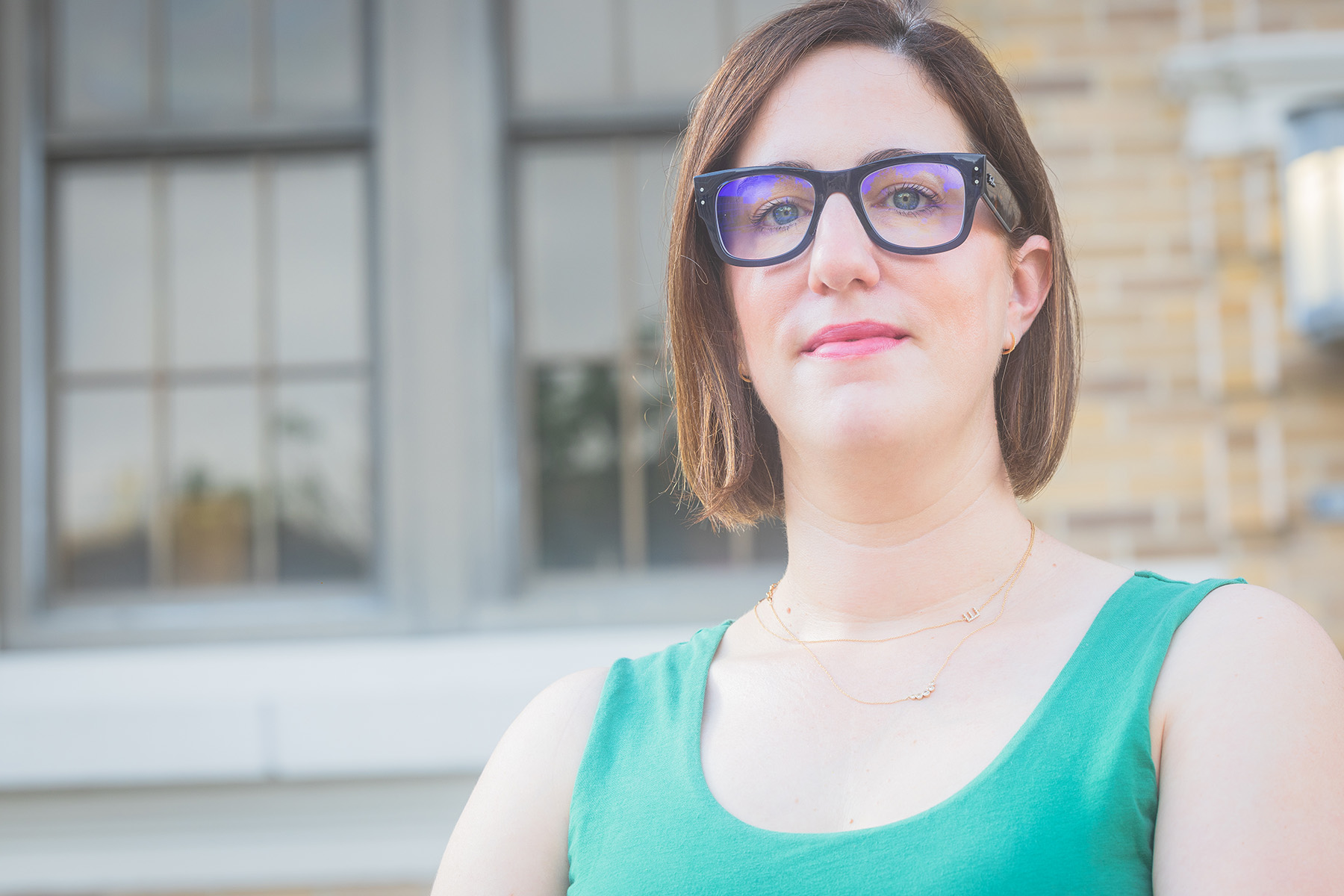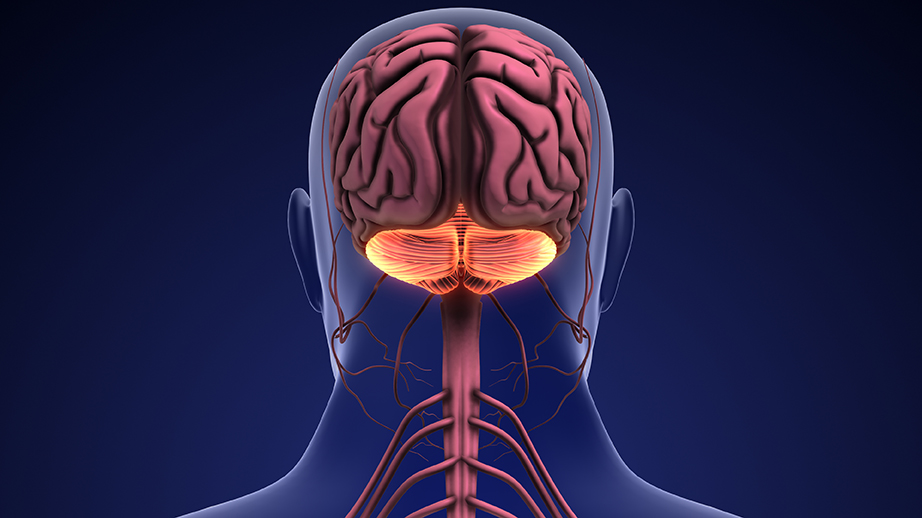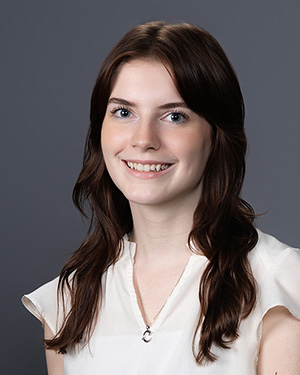
As a child, Dr. Jessica Bernard watched her grandfather gradually lose his independence to Parkinson’s disease, a disorder characterized by tremors, stiffness, balance problems, dementia, sudden incapacitation, fatigue, pain and other debilitating symptoms. Today, she is on the frontlines of neuroscience research, exploring how the brains’ cerebellum — a once overlooked region — could hold the key to preserving memory, movement and quality of life as we age.
Located at the back of the head, the cerebellum coordinates voluntary movements, posture, balance and is associated with cognitive functions such as memory and language. Normal functioning is disrupted when healthy nerve cells in the cerebellum stop working, lose connections with other brain cells or die.
“An individual’s ability to think and move can be measured by observing them as they engage in prescribed activities, administering surveys and imaging their brains structurally and functionally,” said Bernard. “In our research we ask questions about how the brain changes over time and whether we can develop interventions to slow or mitigate the negative effects of these changes.”
Cognitive And Motor Interventions

In a two-year research study generously funded by the WoodNext Foundation, Bernard is collecting data from 120 participants evenly segmented into three groups: young healthy adults, cognitive normal older adults and older adults with some level of mild cognitive impairment.
“Our young adults serve as a baseline for optimum cognitive functioning,” said Bernard. “In cognitively normal older adults, we see occasional lost keys, forgetting a detail here or there as one might expect with healthy aging. Older adults with mild cognitive impairment may have difficulty thinking through things, recalling meaningful information or they may have balance or mobility challenges that can cause them to become increasingly dependent on others.”
Cognitive and motor behaviors are inextricably linked and can impact an individual’s ability to perform the basic activities of daily living (ADL) including bathing, dressing, toileting, transferring (unassisted movement between a chair or bed), continence and feeding.

The aim of the study is to improve outcomes for both groups of older adults through a non-invasive therapeutic approach using Theta burst simulation (TBS). Success would in part be gauged by participant’s enhanced abilities to accomplish ADL and maintain independent living as long as possible.
TBS is a type of transcranial magnetic stimulation that uses short magnetic pulses to stimulate the brain by matching the brain’s natural theta rhythms. Bernard believes TBS may influence behavioral performance, function activation and network connectivity in individuals with either a healthy aging decline or mild cognitive impairment.
“By stimulating the brain’s capacity to process and interpret information and stimulating the connections between the different brain regions that work together to perform certain tasks, TBS may improve or preserve memory and motor performance,” said Bernard. “While this approach will not stop age-related decline, we are hopeful that it will provide a better quality of life and function for a longer period of time.”
Bernard’s research is advancing brain science, and positive results in this study could lead to TBS being used to treat more severe types of progressive brain disorders.
The brain is the most complex organ in the body, and we must take a comprehensive approach to understanding its structure, function and to developing best practices for its care.
Interventions Beyond Aging
Collecting and analyzing brain data can reveal distinct patterns of brain function and connectivity associated with a wide variety of conditions and behaviors. Bernard is engaged in several other brain science research projects including one funded by the Mental Research Institute. This work is being done in collaboration with her colleague Dr. Rebecca Brooker, an expert in early development and parent-child interactions.
The project titled “Neural pathways to positive family development: protective effects of estrogen on mother-infant relationships,” examines the relationship between first-time mothers and their newborns, focusing on how their interactions correspond to brain and hormonal changes during pregnancy and after childbirth.
“In the study we look at how these biological changes impact parenting and infant outcomes,” said Bernard. “We plan to use this information to prepare new moms to become parents and better understand what it means for maternal mental health and well-being.”
Team Effort

As the director of the Lifespan Cognitive and Motor Neuroimaging Laboratory at Texas A&M, Bernard works with several teams comprised of faculty, staff, undergraduate and graduate students. Casey Delaney ’29 is a first-year neuroscience graduate student in Bernard’s lab.
As a student researcher Delaney is working with Bernard on her research program and developing projects of her own.
“Dr. Bernard is an amazing mentor. She is helping me to identify and pursue my own research interests within her lab,” said Delaney. “We are currently collaborating on a paper, and she is helping me to write a grant proposal that I will submit to the Department of Defense in the next few months.”
The multidisciplinary teams Bernard has assembled with researchers from Texas A&M and other institutions benefit faculty, students and will help patients with cognitive or motor decline.
“I am fortunate to work alongside colleagues from a variety of academic disciplines including statistics, nursing, health and kinesiology, biology and medicine,” said Bernard. “The brain is the most complex organ in the body, and we must take a comprehensive approach to understanding its structure, function and to developing best practices for its care.”
